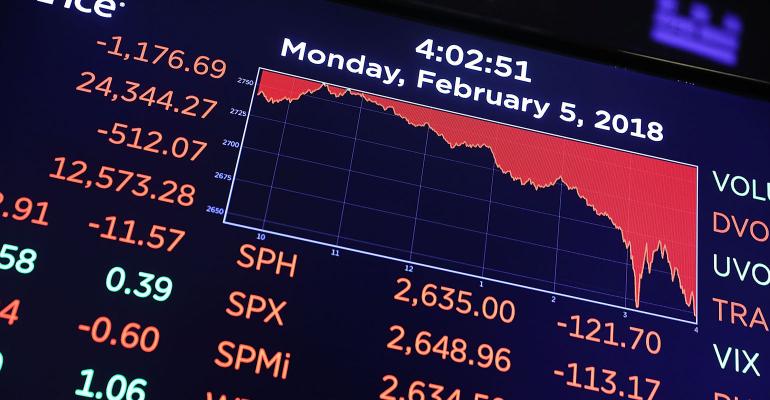The investor’s brain has seemingly become marked by short-term memory loss and an unhealthy ability to cope. Long forgotten is the agony that spurred commitment to “be better next time,” as prompted for so many of us by the Great Financial Crisis 10 years ago.
An accommodative group of global central banks has brought the fix. Market volatility, seemingly, is a thing of the “old world” and, while surfacing here and there, has been targeted aggressively through low rates and material asset buybacks. As a result, risk has been suppressed, leading many investors—their financial advisors—to believe (with regard to allocating money) not only that everything “goes up,” but also that there’s no need for active management, which should at least partially explain the massive shift into low-cost, passive investment options over recent years. However, our early conclusion is that it cannot (and should not) be that easy!
If any doubt remains, recent swings in equity markets are likely foreshadowing something bigger: a regime change. Rising bond yields, higher inflation readings, and a Trump policy mix in the 60s “Great Society” style, are the building blocks for a new investment environment, finally turning the chapter from de-/reflationary to inflationary. The transition of our society from focusing on globalization to embracing economic nationalism—not only in the U.S.—will add to the complexity, as currency and trade wars will become the “off-Broadway” equivalent to the grander spectacle unfolding in traditional capital markets.
With an understanding that the global economy, for the most part, is “chugging along,” a necessary transformation from a financial economy to a real economy still needs to take place. At this point, market participants will assess whether or not current valuations across many asset classes and markets are truly justifiable, especially if interest rates adjust to higher levels. This is not a (my) call for the proverbial “market top” and massive corrections to follow, but rather a warning to apply a more discriminating filter when choosing an asset allocation. In this respect, buying every market dip in expectation of a guaranteed recovery will be challenged.
In the short term, the recent correction must play out; in case it already has, we can claim another prize in this game of accommodative ignorance: “the shortest correction in 50 years.” In the long run, conditions must normalize, with rates being marked higher—hopefully prompting an end to the misallocation of capital, bringing more typical (i.e., higher) volatility levels, and restoring (negative) correlations that will ruthlessly remind us of the difference between underlying risks of assets. While this much-needed transformation/regime change is playing out, investors have an opportunity to shift their asset mix ahead of time.
Matthias Paul Kuhlmey is a partner and head of Global Investment Solutions at HighTower Advisors. He serves as wealth manager to high-net-worth and ultra-high-net-worth individuals, family offices and institutions.

